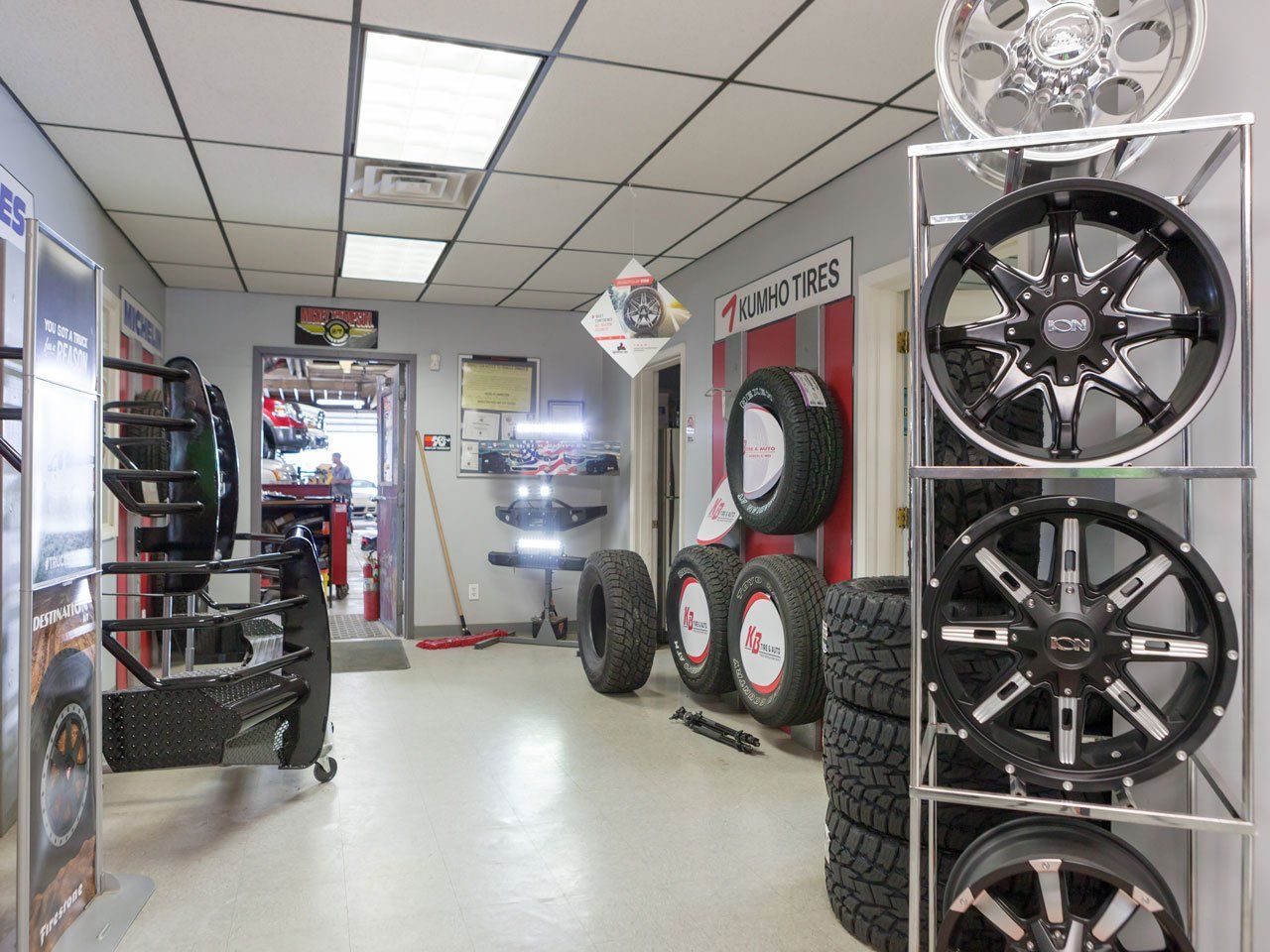Cooling System Maintenance
Cooling System Maintenance
COOLING SYSTEM MAINTENANCE
WHY DO I NEED TO CHECK MY CAR’S COOLING SYSTEM?
You could be sitting at a stop sign or making a left-hand turn when you notice your engine’s temperature gauge climbing into the red zone. Auto cooling system problems can start at anytime and usually disrupt every aspect of your life. Don’t let your ‘Check Engine’ light stay on, call KB Tire & Auto today
for help with your car’s cooling system!
WHAT DOES MY CAR’S COOLING SYSTEM DO?
Your vehicle’s cooling system is designed to keep your engine at a consistent temperature, not too hot and not too cold. There are several components working together to ensure your car is running at a safe temperature. If the radiator isn’t functioning correctly or if you’re low on coolant, you will most likely be warned with a light on your dash or notice your temperature gauge spiking.
The overall goal of your engine’s cooling system is to move heat away from the engine and maintain the operating temperature by circulating antifreeze or coolant through the engine, and carrying it to the radiator for cooling.
Coolant temperatures sometimes reach 250 to 275 degrees and even with antifreeze added, these temperatures boil the coolant. To prevent boiling, the cooling system raises the coolant boiling point by pressurizing it. Most systems pressurize coolant at 14 to 15 pounds per square inch (psi) which raises the boiling point approximately 45 degrees.
The skilled technicians at KB Tire and Auto know the importance of a properly working cooling system. Come to our shop or call or email us today to schedule a thorough inspection!
The overall goal of your engine’s cooling system is to move heat away from the engine and maintain the operating temperature by circulating antifreeze or coolant through the engine, and carrying it to the radiator for cooling.
Most cars and trucks operate within a wide temperature range, from well below freezing to over 100 degrees. The antifreeze or coolant used to cool the engine must have a low freezing point, high boiling point and the ability to transfer heat. An adequate amount of coolant and water reduces the possibility of an engine overheating or freezing. Plus, most antifreeze or coolant fluids contain additives to prevent rust and corrosion in your engine’s cooling system.
Coolant temperatures sometimes reach 250 to 275 degrees and even with antifreeze added, these temperatures boil the coolant. To prevent boiling, the cooling system raises the coolant boiling point by pressurizing it. Most systems pressurize coolant at 14 to 15 pounds per square inch (psi) which raises the boiling point approximately 45 degrees.
The skilled technicians at KB Tire and Auto know the importance of a properly working cooling system. Come to our shop or call or email us today to schedule a thorough inspection!
AUTO COOLING SYSTEM GLOSSARY
At KB Tire, we understand not every term used in the auto body world is common knowledge. To help you confidently voice your concern to your auto mechanic, here are a few key terms to consider when asking about your vehicle’s cooling system.
Coolant: Coolant is a chemical used to keep you car or truck’s radiator from freezing or overheating.
Thermostat: Your vehicle’s thermostat regulates the flow of coolant through the cooling system.
Water Pump: The water pump keeps the coolant flowing through your engine’s cooling system.
Radiator: Your car’s radiator is used to transfer heat from the fluid inside to the air outside. Additionally, radiators are used to cool automatic transmission fluids.
Radiator Fan: The radiator fan pushes or pulls air through the radiator.
Cooling System Pressure Cap: The Cooling System Pressure Cap, usually located on the radiator or coolant reservoir tank, keeps pressure on the cooling system.
Coolant: Coolant is a chemical used to keep you car or truck’s radiator from freezing or overheating.
Thermostat: Your vehicle’s thermostat regulates the flow of coolant through the cooling system.
Water Pump: The water pump keeps the coolant flowing through your engine’s cooling system.
Radiator: Your car’s radiator is used to transfer heat from the fluid inside to the air outside. Additionally, radiators are used to cool automatic transmission fluids.
Radiator Fan: The radiator fan pushes or pulls air through the radiator.
Cooling System Pressure Cap: The Cooling System Pressure Cap, usually located on the radiator or coolant reservoir tank, keeps pressure on the cooling system.
HOW OFTEN SHOULD I CHECK MY CAR’S COOLING SYSTEM?
Maintaining your vehicle’s engine is vital to ensuring your safety on the road. At KB Tire and Auto, we recommend a preventative cooling system maintenance check at least once every two years for most cars and trucks.
The cooling system inspection identifies parts of your vehicle in need of repair or upkeep. During an inspection, our team looks for the following:
The cooling system inspection identifies parts of your vehicle in need of repair or upkeep. During an inspection, our team looks for the following:
- A visual inspection of all cooling system components, including belts and hoses
- A radiator cap pressure test to check the recommended system pressure level
- A thermostat check for proper opening and closing
- A pressure test to identify external leaks to the cooling system parts including the radiator, water pump, engine coolant passages, radiator, heater hoses and heater core
- An internal leak test to check for combustion gas leakage into the cooling system
Come in to our shop or call or email us today for a thorough inspection.
About Us
KB Tire & Auto carries top brands like Bridgestone, Michelin®, and Goodyear at a great price. We specialize in passenger, SUV, and light truck tires and services.
FIND Us
© 2023 KB Tire & Auto | All Rights Reserved | Website by Lift Division

